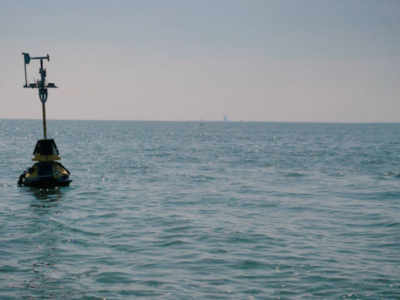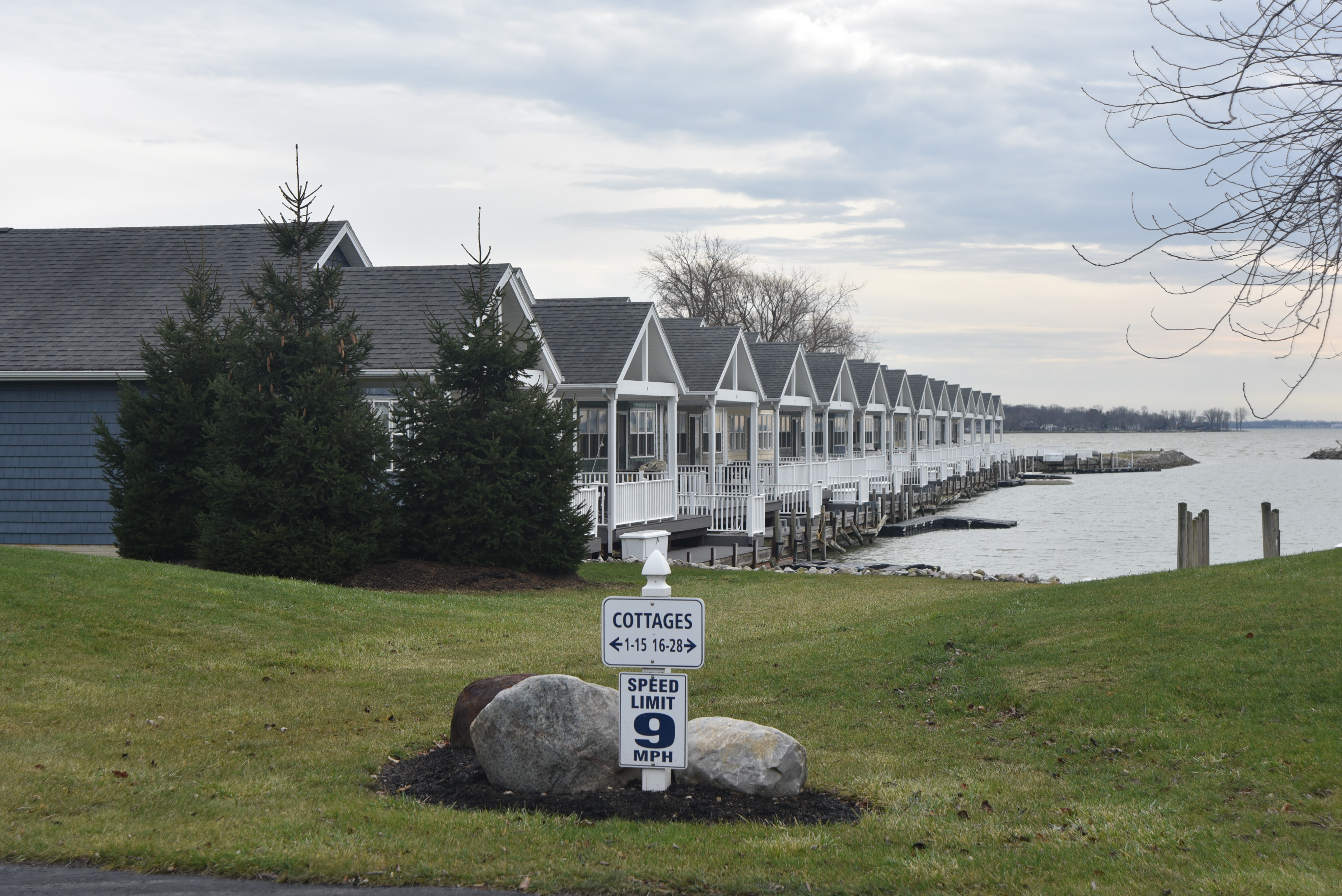
Editor’s Note: This is part one of a two-part story. Look for the next part next week.
Every summer for the last decade, James Peterson, his wife and two daughters traveled from Charleston, West Virginia, to Kaspar’s Lake Breeze Cottages in Marblehead, Ohio, to fish, relax and soak up the beauty and restorative power of Lake Erie.
For more than a half century, Kaspar’s five small log cabin cottages have provided respite from the world at-large for hundreds of families just like Peterson’s.
“You can get a modern hotel in Port Clinton, but it’s not the same,” Peterson said. “I just like the old-school cabins; you got your front porch right on the lake. It’s just a different world, a better world. The owners are just my kind of people from way back when.”
But on the Marblehead Peninsula, which separates Sandusky Bay from Lake Erie, change is afoot.
On the Great Lakes, long-time fishing families are being forced from their livelihoods by waterfront tourism development and high-end housing. And on the peninsula, long-time vacation cottages and cabins held dear by blue-collar and middle-class families for decades are disappearing too.
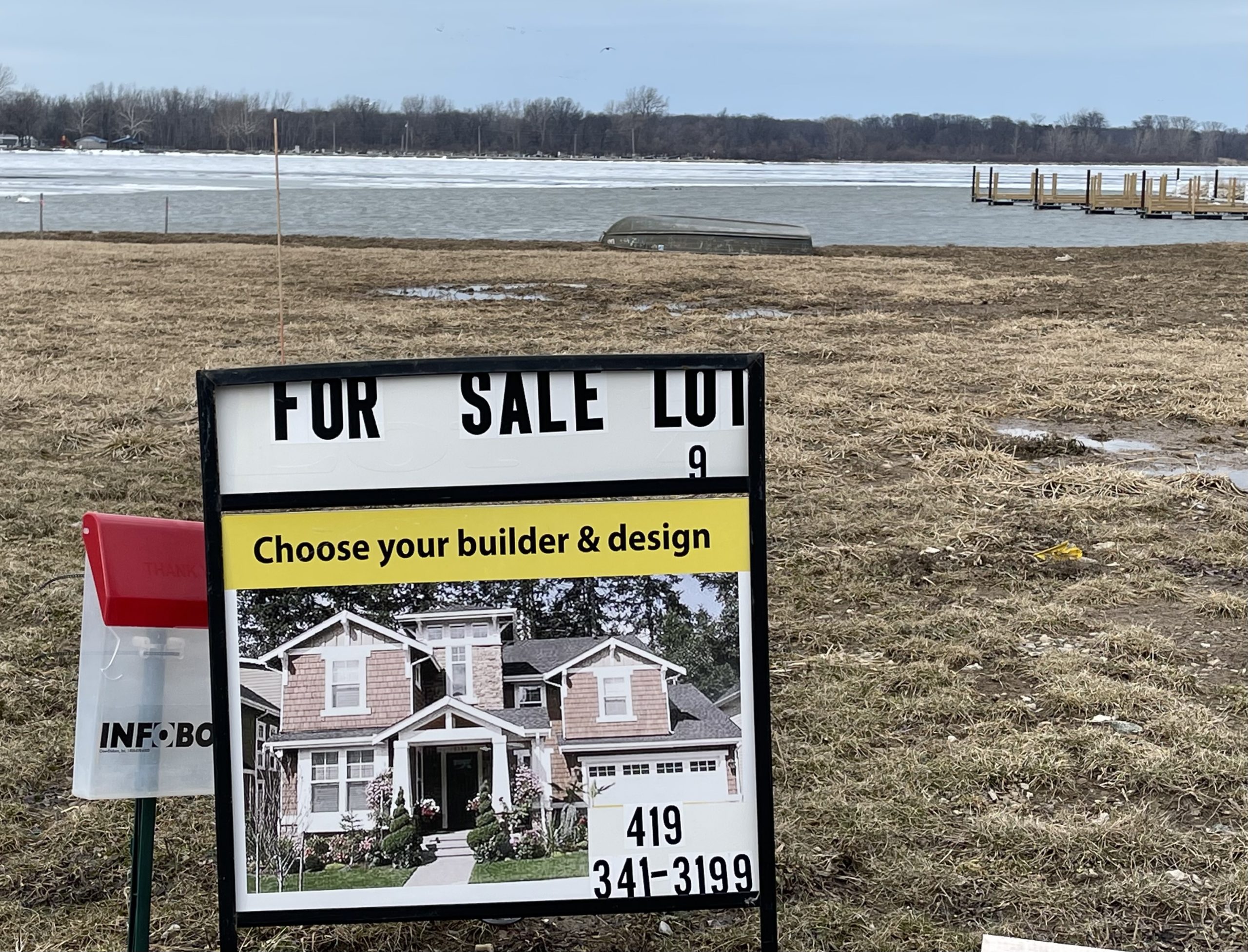
A quarter-acre or less on East Harbor in Ohio can cost upwards of $200,000. (Photo Credit: James Proffitt)
Pandemic helped push prices through the roof
The skyrocketing real estate prices were exacerbated most recently by the COVID-19 pandemic.
The trend is especially intense in Ottawa County, a semi-rural location with a year-round population of about 43,000. On summer holiday weekends, county officials estimate the population swells to a quarter million. Since the pandemic began, many of those visitors decided they wanted to stay.
“It started in the second half of 2019, and COVID is what really set it off in 2020 because people were trying to escape to a place they considered relatively safe,” said Tomi Johnson, a real estate agent who’s been in the industry for 42 years. “Buying something on a golf course or a marina allowed (people) to get outside, get on a boat, and so it was a safe place to come. And a lot of people were working from home, so they could just stay here.”
The gentrification of the Marblehead Peninsula has seen the loss of many cottage and trailer communities and left a legion of families without their cherished, affordable retreats. In most cases people purchase the trailers, which in Ohio are titled like a motor vehicle. Then they pay a monthly lot rent to the park owner, and sometimes a water and sewer bill also.
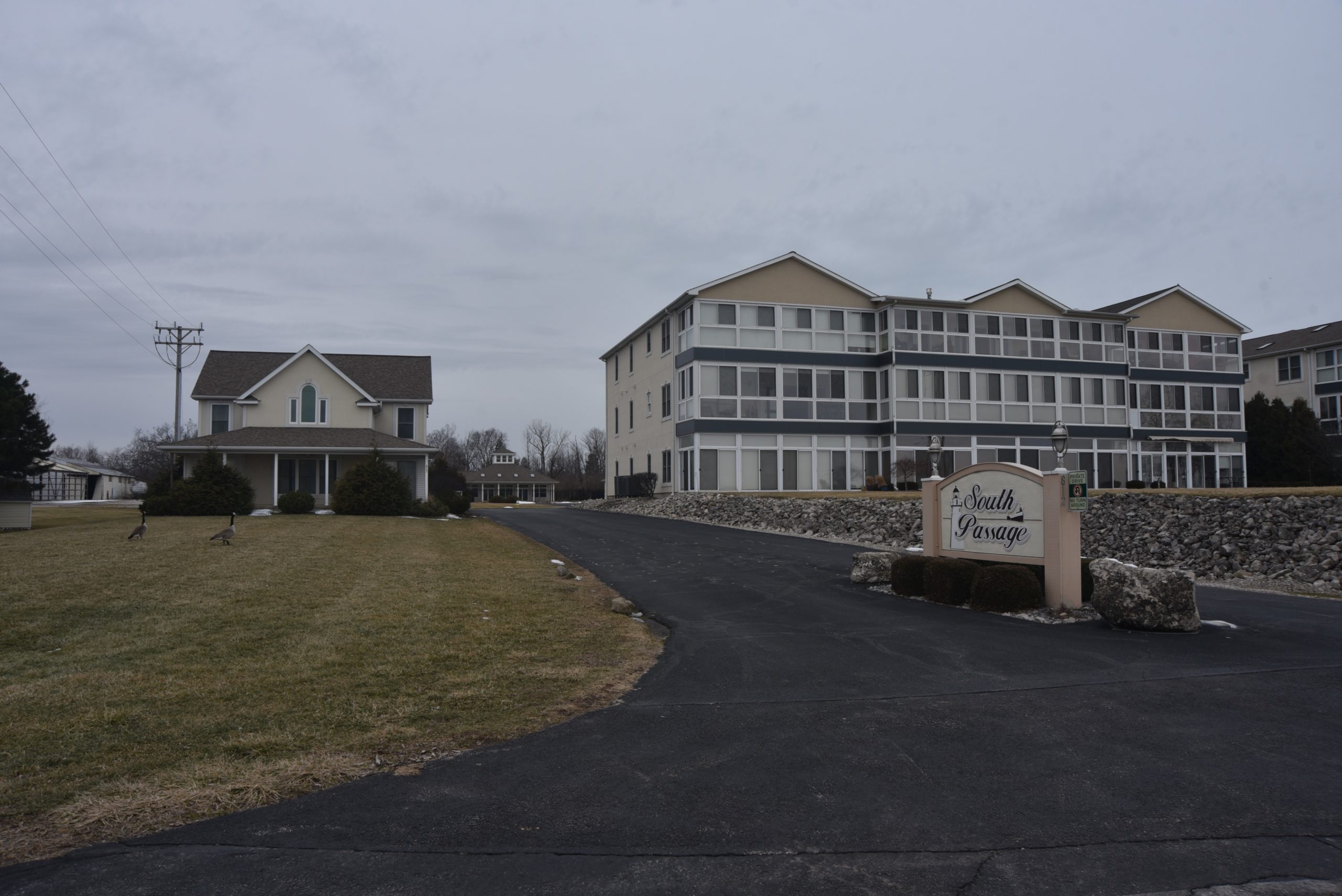
The developer of South Passage condos built an on-site house for the landowner in order to secure the deal. (Photo Credit: James Proffitt)
One developer gets creative to acquire property, improve lake view
Sites for new water-related development are disappearing quickly, and because of that, some developers have gotten creative – like the one who developed Joan Schmidt’s property.
Schmidt, now in her 80s, has lived across the street from Lake Erie near the Marblehead Lighthouse her entire life. And she wasn’t interested in selling her property and moving in 2006, when a developer was hoping to build condominiums on the site.
“He wasn’t going to get the property I owned,” she said. “I wasn’t going anywhere.”
Schmidt and the developer eventually struck a deal where he would buy the land and build the condos. One caveat: she lived in one of the newly finished condos for a few months while the developer razed her original home then constructed a brand new one at the same site. And she could live there the rest of her life.
“If he wanted my property, he was going to have to do what he had to do,” Schmidt said. “I wasn’t going to leave.”
In addition to the innovative sale arrangement with Schmidt, the developer was able to improve the lake view for condo residents. To accomplish this, at his expense, the utility company installed new, taller poles, significantly raising the utility lines above their previous height.
Middle-class families priced out by large-scale migration
“I get it,” said Chuck Marohn, a native of Brainerd, Minnesota, and founder of Strong Towns, an advocacy group that counsels municipalities on finance and development. “I grew up and a lot of my friends, a lot of people I knew owned lake homes, and nobody owns lake homes now. They’re all owned by insurance company CEOs. I can sympathize totally.”
Marohn, a civil engineer and planner, said his early career involved designing and permitting sewer systems for expanding municipalities and upscale homes. That work performed early in his career was in part the impetus for him founding Strong Towns.
“What I saw around here, when it was middle-class and blue-collar kind of stuff, there were a lot of problems with sewage systems being run right into the lake because that’s the way it was in the ‘30s, ‘40s, ‘50s,” Marohn said, “but you can fix those up and you can take care of that in a way, and property owners would do that.”
But according to Marohn, when a large-scale migration of people from the Minneapolis-St. Paul area hit the Brainerd region, things changed.
“Every lake up here got transformed, the lakes became urbanized, and they put in big sewer systems and then they tore down all the cabins and built these huge homes,” he said. “So you can look at it and say ‘Are they better off now tax-base-wise? You’ve got homes that are technically worth more, but they’ve got expenses now that are way more. Three, four, five times the expenses they used to have back when it was a simple thing.'”
Pat Mullins traveled with friends from Cincinnati to Marblehead to fish for walleye years before he purchased a home on the peninsula in 1999. He remembers the old-timers in his neighborhood and what he called the “good old days.”
“Paul Naniack used to have cabins down there called Land’s End,” he recalled. “But in the ‘60s they came through with all these regulations where if you rented cabins, you couldn’t be on septic, you had to be on the sewer system. He told them ‘Go to Hell’ and closed his doors and didn’t rent anything.”
According to Mullins, Naniack earned a living selling tools and making repairs after that, and it was the end for his rentals. Years later, when Naniack died, his overgrown Sandusky Bay marina property was sold to make way for condominiums, Cottages of Marblehead.
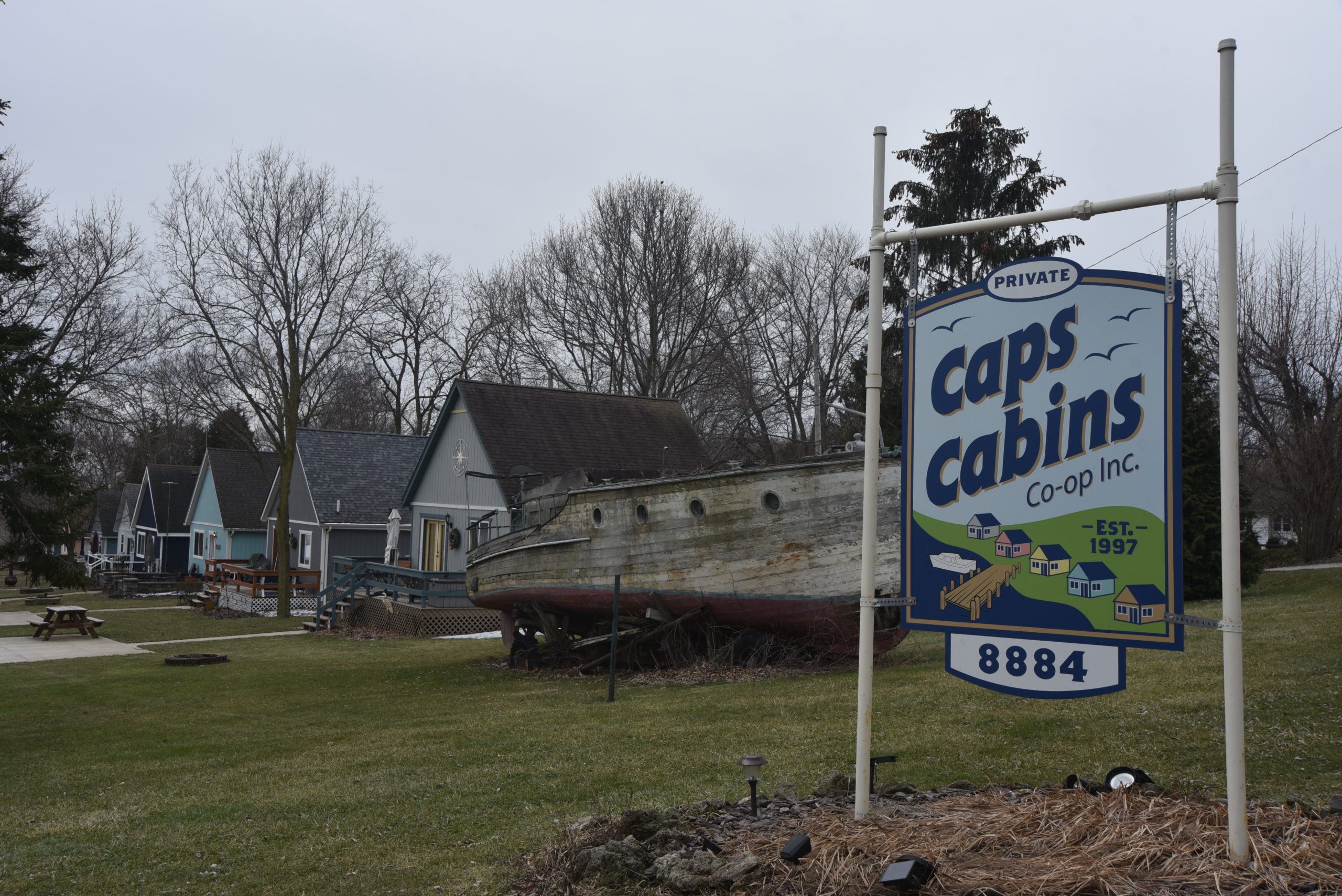
Cooperative ownership scenarios, like this one on the Marblehead Peninsula, are becoming more common as real estate prices rise. (Photo Credit: James Proffitt)
Around 2008, more than two-dozen 1,050-square-foot waterfront cottages were built by a developer. They sold new for between $175,000-$180,000, according to the Ottawa County Auditor’s Office. A May 2021 sale of one of the cottages was recorded at $388,000, a 215% increase from the original sale price.
Mullins also cited zoning as a change agent – in his opinion for the worse.
At Wilson’s Beach, he said, a group of friends had converted an old city bus into a fishing retreat.
“They kept it spick-and-span and the yard all nice, and they’d come up and fish and cook and eat,” he said.
Mullins said when zoning arrived in the mid ‘70s, things changed and old city buses were out. When he and his best friend first began coming to the lake, many small developments were already folding.
“They were almost giving trailers and cottages away,” Mullins explained. “They improved the roads and put in the big sewer system, and that hammered everybody. If you look at it, all these places where there are developments now used to be campgrounds.”
Waxing nostalgic on the old days, he described how a few buddies could put up a fishing shack on the cheap.
“Some of those places were made out of shipping containers off the railroad cars,” Mullins said. “You’d get three or four of these containers and take them apart and take them down there and put them together, and over a period of a couple years you’d have a fishing shanty.”
Generational changes end family businesses
Cleveland native, Marblehead resident and long-time Danbury Township trustee Dianne Rozak said such infrastructure investments raise property values not just in Ottawa County, but wherever they happen.
And zoning protects all residents, she added.
“It’s very simple, if we don’t have zoning there isn’t anything to stop an oil refinery from going in right where nice new homes are going in or even next to a trailer park or cottages,” Rozak explained. Without local zoning ordinances, anything can go anywhere. “There are a couple townships in the county that have turned down zoning countless times, and it shows.”
According to Rozak, development rarely goes without a few hiccups.
“There’s always controversy over development, always,” she said, going on to cite generational change as a prime factor in the turnover of small blue-collar sites. “The newer generation doesn’t want to run a campground or a bait shop or a drive-thru, and they don’t want a farm, so what’s happened? ‘Well, we need to get rid of this property,’ so it’s a generational change.”

While the cottages at Kaspar’s Lake Breeze Cottages are no longer available for rent, the family has no plans to sell the house, cottages or land at this time. (Photo Credit: James Proffitt)
That’s the case for Kaspar’s, which weathered water and sewer improvements in the past but won’t be operating any longer. At least for now, the property is not being sold for development and will stay just as it is.
“My parents are closing because they are both 83 years old, and business was good up to the end with many generations of families coming each year,” said Brian Sauvey, who is a career mariner on Great Lakes freighters. “It would be hard for any one of the family members to continue the business at this time.”
Despite having six siblings, Sauvey said no one is taking over to run the cottage rentals. But he does foresee the property staying in the family and his parents enjoying it without the work.
“It was my grandfather’s dream to buy this wooded property on the water and clear it out,” Sauvey said. “He had the cabins hauled down on a flatbed from Hillman, Michigan. Times have changed throughout the years. This property is like a time capsule, unique because it basically looks the same as it did when they opened up, the landscape and development changing around them for years.”
Peterson said his family has enjoyed the Sauveys’ company for the last decade.
“It made me very sad. This is a fall routine for my family every year. What are we going to do next year?” he lamented. “I don’t know. We’ll have to look for something. I was hoping as they got older one of the kids would take over.”
Though sad to hear of Kaspar’s closing, Rozak said she’s glad to hear the site isn’t for sale.
“I like driving past it,” she said, before pointing out the ways the landscape has already changed. “I can’t tell you how many times people used to say, ‘You know, there used to be this little restaurant that had pies and picnic tables and good perch, it was down on the water,’ and I say, ‘Yeah, that would be The Boat Club Condos, they sold out,’ and people look at me aghast.”
Catch more news at Great Lakes Now:
Top 10 Fish to Catch: Great Lakes means great fishing
Walleye Windfall: Lake Erie bait and tackle is big small business
Featured image: These Sandusky Bay cottages, built on the site of a former vintage fishing shack and boat rental operation, have nearly doubled in value since their construction about 15 years ago. (Photo Credit: James Proffitt)
1 Comment
-
They can do what they want as long as the public has access to the water and beach area. No Private Waterfront!


